 W
WAmarok is a free and open-source music player. It is available for Unix-like, as well as for Windows and macOS systems. Although Amarok is part of the KDE project, it is released independently of the central KDE Software Compilation release cycle. Amarok is released under the terms of the GNU General Public License version 2.
 W
Wamsynth is an open source realtime software synthesizer for Linux. Its operation is similar to analog Moog Minimoog and Roland Juno-60, which are considered classic synthesizers from the 1970s.
 W
WAqualung is a free and open-source audio player originally targeted at the GNU/Linux operating system, but also running on FreeBSD, OpenBSD, Mac OS X and Microsoft Windows. It plays audio CDs, internet radio streams and podcasts as well as soundfiles in just about any audio format and has the feature of inserting no gaps between adjacent tracks.
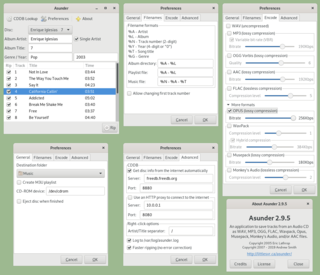 W
WAsunder is a free and open-source graphical (GTK2) CD-ripping program for Unix-like systems. It doesn't have dependencies to the GNOME libraries or libraries of other desktop environments. It functions as a front-end for cdparanoia.
 W
WaTunes is a free and open source audio player with MPlayer as its playback engine. aTunes supports MP3, Ogg Vorbis, FLAC and other formats. aTunes allows users to edit tags, organize music and rip audio CDs easily.
 W
WAudacious is a free and open-source audio player software with a focus on low resource use, high audio quality, and support for a wide range of audio formats. It is designed primarily for use on POSIX-compatible Unix-like operating systems, with limited support for Microsoft Windows. Audacious is the default audio player in Lubuntu and Ubuntu Studio.
 W
WAV Linux is a Linux-based operating system aimed for multimedia content creators. Available for the i386 and x86-64 architectures with a kernel customised for maximum performance and low-latency audio production, it has been recommended as a supported Linux platform for Harrison Mixbus.
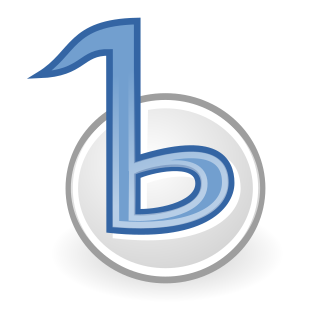 W
WBanshee is a cross-platform open-source media player, called Sonance until 2005. Built upon Mono and Gtk#, it uses the GStreamer multimedia platform for encoding and decoding various media formats, including Ogg Vorbis, MP3 and FLAC. Banshee can play and import audio CDs and supports many portable media players, including Apple's iPod, Android devices and Creative's ZEN players. Other features include Last.fm integration, album artwork fetching, smart playlists and podcast support. Banshee is released under the terms of the MIT License. Stable versions are available for many Linux distributions, as well as a beta preview for OS X and an alpha preview for Windows.
 W
WChucK is a concurrent, strongly timed audio programming language for real-time synthesis, composition, and performance, which runs on Linux, Mac OS X, Microsoft Windows, and iOS. It is designed to favor readability and flexibility for the programmer over other considerations such as raw performance. It natively supports deterministic concurrency and multiple, simultaneous, dynamic control rates. Another key feature is the ability to live code; adding, removing, and modifying code on the fly, while the program is running, without stopping or restarting. It has a highly precise timing/concurrency model, allowing for arbitrarily fine granularity. It offers composers and researchers a powerful and flexible programming tool for building and experimenting with complex audio synthesis programs, and real-time interactive control.
 W
WClementine is a free and open-source audio player. It is a port of Amarok 1.4 to the Qt 4 framework and the GStreamer multimedia framework. It is available for Unix-like, Windows and macOS. Clementine is released under the terms of the GNU General Public License.
 W
Wcmus is a small and fast console audio player for Unix-like operating systems. cmus is distributed under the terms of the GNU General Public License (GPL) and operates exclusively through a text-based user interface, built with ncurses.
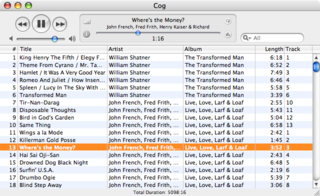 W
WCog is an open source audio player for macOS. The basic layout is a single-paned playlist interface with two retractable drawers, one for navigating the user's music folders and another for viewing audio file properties, like bitrate. Along with supporting most audio formats compatible with macOS's Core Audio API, Cog supports a wide array of other audio formats, along with their metadata, which are otherwise unsupported on macOS.
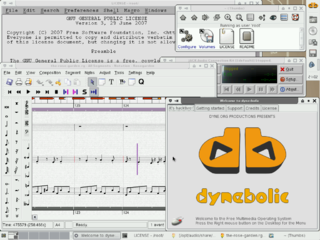 W
Wdyne:bolic GNU/Linux is a Live CD/DVD distribution based on the Linux kernel. It is shaped by the needs of media activists, artists and creators to be a practical tool with a focus on multimedia production, that delivers a large assortment of applications. It allows manipulation and broadcast of both sound and video with tools to record, edit, encode, and stream. In addition to multimedia specific programs, dyne:bolic also provides word processors and common desktop computing tools.
 W
WEasyTag is a graphical tag editor for Linux and Microsoft Windows. An attempt to bring EasyTAG to OS X is ongoing. It is written in C and relies on GTK+ and id3lib for graphics and ID3 tag handling respectively. As of version 2.1.1, EasyTag also uses the tag manipulation library provided by the MAD project, for support of ID3v2.4.
 W
WEMMS is media player software for Emacs. It is written in Emacs Lisp. The name could possibly echo XMMS. It may be derived from an earlier Emacs-based player called mp3-player.
 W
WEx Falso is a free and open source, cross-platform audio tag editor and library organizer. It is a user interface sharing the same backend software as Quod Libet, minus the ability to play music. It is developed by the same software team responsible for Quod Libet.
 W
WExaile is a cross-platform free and open-source audio player, tag editor and library organizer. It was originally conceived to be similar in style and functions to KDE's Amarok 1.4, but uses the GTK+ widget toolkit rather than Qt. It is written in Python and utilizes the GStreamer media framework.
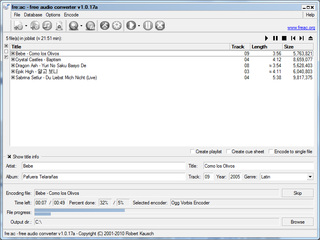 W
Wfre:ac is a free audio converter and CD extractor for Microsoft Windows, Linux, macOS and FreeBSD, distributed under the GNU General Public License.
 W
WGnaural is brainwave entrainment software for Microsoft Windows, Mac OS X, and Linux licensed under the GNU General Public License. Gnaural is free software for creating binaural beats intended to be used as personal brainwave synchronization software, for scientific research, or by professionals.
 W
WGNOME SoundConverter is an unofficial GNOME-based free and open-source transcoder for digital audio files. It uses GStreamer for input and output files. It has multi threaded design and can also extract the audio from video files.
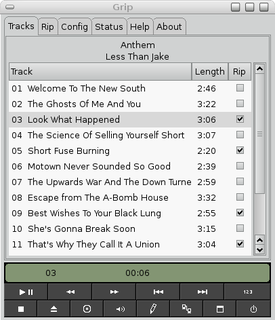 W
WGrip is a free Compact Disc player and CD ripper.
 W
Wgtkpod provides a graphical user interface that enables users of Linux and other Unix operating systems to transfer audio files onto their iPod Classic, iPod Nano, iPod Shuffle, iPod Photo, or iPod Mini music players. Although it does not support some of the more advanced features of iTunes, gtkpod still performs the role of an iPod manager for Linux. Album art and videos are now supported, and preliminary support for jailbroken iPhones and iPod Touches is available.
 W
WIcecast is a streaming media project released as free software maintained by the Xiph.org Foundation. It also refers specifically to the server program which is part of the project. Icecast was created in December 1998/January 1999 by Jack Moffitt and Barath Raghavan to provide an open-source audio streaming server that anyone could modify, use, and tinker with. Version 2, a ground-up rewrite aimed at multi-format support and scalability, was started in 2001 and released in January 2004.
 W
WImpulse Tracker is a multi-track digital sound tracker. Originally released in 1995 by Jeffrey Lim as Freeware with commercial extensions, it was one of the last tracker programs for the DOS platform.
 W
WJokosher is a free software, non-linear multi-track digital audio editor, released under the GNU GPL. It is written in Python, using the GTK+ interface and GStreamer as an audio back-end, initially just for the Linux operating system but also with support for Windows.
 W
WKid3 is an open-source cross-platform audio tag editor for many audio file formats. It supports DSF, MP3, Ogg, FLAC, MPC, MPEG-4 (mp4/m4a/m4b), AAC, Opus, SPX, TrueAudio, APE, WavPack, WMA, WAV, AIFF, tracker modules.
 W
WLADSPA is an acronym for Linux Audio Developer's Simple Plugin API. It is an application programming interface (API) standard for handling audio filters and audio signal processing effects, licensed under the GNU Lesser General Public License (LGPL). It was originally designed for Linux through consensus on the Linux Audio Developers Mailing List, but works on a variety of other platforms. It is used in many free audio software projects and there is a wide range of LADSPA plug-ins available.
 W
WMP3Gain is an audio normalization software tool. The tool is available on multiple platforms and is free software. It analyzes the MP3 and reversibly changes its volume. The volume can be adjusted for single files or as album where all files would have the same perceived loudness. It is an implementation of ReplayGain. In 2015 Debian and Ubuntu removed it from their repositories due to a lack of an active maintainer.
 W
Wmpg123 is a free and open-source audio player. It supports MPEG audio formats, including MP3.
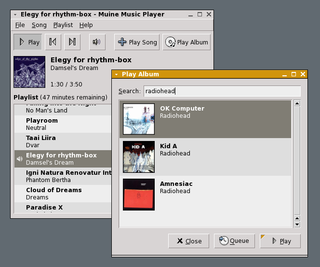 W
WMuine is an audio player for the GNOME desktop environment which runs on Linux, Solaris, BSD and other UNIX-like systems. Muine is written in C# using Mono and Gtk#. The default backend is GStreamer framework but Muine can also use xine libraries.
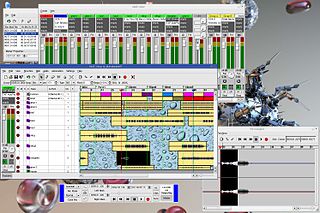 W
WMusE is computer software, a sequencer for Musical Instrument Digital Interface (MIDI) and audio, with recording and editing abilities. It was originally written by Werner Schweer and now is developed by the MusE development team. It is free software released under the GNU General Public License.
 W
WMusic On Console (MOC) is an ncurses-based console audio player for Linux/UNIX. It was originally written by Damian Pietras, and is currently maintained by John Fitzgerald. It is designed to be powerful and easy to use, with an interface inspired by the Midnight Commander console file manager. The default interface layout comprises a file list in the left pane with the playlist on the right. It is configurable with customizable key bindings, color schemes and interface layouts. MOC comes with several themes defined in text files, which can be modified to create new layouts. It supports ALSA, OSS or JACK outputs.
 W
WMusix GNU+Linux is a discontinued live CD and DVD Linux distribution for the IA-32 processor family based on Debian. It contained a collection of software for audio production, graphic design, video editing and general purpose applications. The initiator and co-director of the project was Marcos Germán Guglielmetti.
 W
Welementary OS is a Linux distribution based on Ubuntu LTS. It promotes itself as a “fast, open, and privacy-respecting” replacement to macOS and Windows and has a pay-what-you-want model. The operating system, the desktop environment, and accompanying applications are developed and maintained by Elementary, Inc.
 W
WNulloy is a free and open source, small, multiplatform audio player with unique feature — progress bar in the form of waveform. Build with C++, Qt. First release was back in 2011. Running under Linux, macOS, and Windows. For the macOS and Windows operating systems, the developer provides binaries, but the developer doesn't offer any convenient packages for Linux distributions.
 W
WThe Open Sound System (OSS) is an interface for making and capturing sound in Unix and Unix-like operating systems. It is based on standard Unix devices system calls. The term also sometimes refers to the software in a Unix kernel that provides the OSS interface; it can be thought of as a device driver for sound controller hardware. The goal of OSS is to allow the writing of sound-based applications that are agnostic of the underlying sound hardware.
 W
WOpenBroadcaster is a web-based, open-source system to run community radio and television broadcast transmitters with a simple web interface.
 W
WOpenMPT is an open-source audio module tracker for Windows. It was previously called ModPlug Tracker, and was first released by Olivier Lapicque in September 1997.
 W
WPraat is a free computer software package for speech analysis in phonetics. It was designed, and continues to be developed, by Paul Boersma and David Weenink of the University of Amsterdam. It can run on a wide range of operating systems, including various versions of Unix, Linux, Mac and Microsoft Windows. The program supports speech synthesis, including articulatory synthesis.
 W
WPsycle is a modular music production application for Microsoft Windows IBM PC-compatible computers. It is based on the tracker interface but also includes features like VST compatibility, 96 kHz / 32 bit wav rendering and ASIO support. Psycle songs are stored in .psy files although the software is able to import other popular tracker formats as well like .xm, .it and the original .mod extension files.
 W
WPure Data (Pd) is a visual programming language developed by Miller Puckette in the 1990s for creating interactive computer music and multimedia works. While Puckette is the main author of the program, Pd is an open-source project with a large developer base working on new extensions. It is released under a license similar to the BSD license. It runs on GNU/Linux, Mac OS X, iOS, Android and Windows. Ports exist for FreeBSD and IRIX.
 W
Wqmmp is a free and open-source cross-platform audio player that is similar to Winamp. It is written in C++ using the Qt widget toolkit for the user interface. It officially supports the operating systems Linux, FreeBSD and Microsoft Windows. In most popular Linux distributions, it is available through the standard package repositories. It is the only audio player not featuring a database that uses the Qt library.
 W
WQTFairUse is a software application first released in November 2003 by Jon Lech Johansen. It dumps the raw output of a QuickTime AAC stream to a file, which could bypass the digital rights management (DRM) algorithm called FairPlay used to encrypt music content of media files such as those distributed by the iTunes Store, Apple's online music store. Although these resulting raw AAC files were unplayable by most media players at the time of release, they represented the first attempt at circumventing Apple's encryption. These early versions of QTFairUse would save only the "raw" AAC, but later incarnations properly supported full conversions.
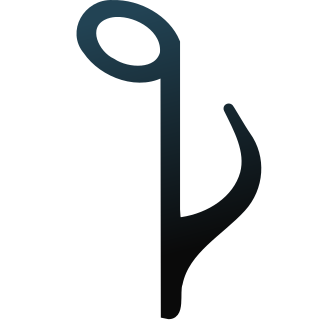 W
WQuod Libet is a cross-platform free and open-source audio player, tag editor and library organizer. The main design philosophy is that the user knows how they want to organize their music best; the software is therefore built to be fully customizable and extensible using regular expressions. Quod Libet is based on GTK and written in Python, and uses the Mutagen tagging library. Ex Falso is the stand-alone tag-editing app based on the same code and libraries.
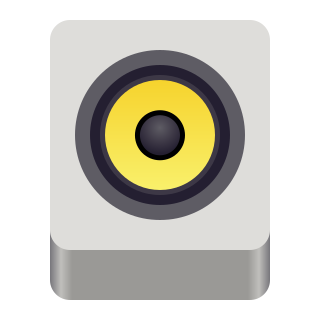 W
WRhythmbox is a free and open-source audio player software, tag editor and music organizer for digital audio files on Linux and Unix-like systems.
 W
WRosegarden is a free software digital audio workstation program developed for Linux with ALSA and Qt4. It acts as an audio and MIDI sequencer, scorewriter and musical composition and editing tool. It is intended to be a free alternative to such applications as Cubase.
 W
WSonic Pi is a live coding environment based on Ruby, originally designed to support both computing and music lessons in schools, developed by Sam Aaron in the University of Cambridge Computer Laboratory in collaboration with Raspberry Pi Foundation.
 W
WSound Juicer is the official CD ripper program of GNOME. It is based on GTK, GStreamer, and libburnia for reading and writing optical discs. It can extract audio tracks from optical audio discs and convert them into audio files that a personal computer or digital audio player can play. It supports ripping to any audio codec supported by a GStreamer plugin, such as Opus, MP3, Ogg Vorbis, FLAC and uncompressed PCM formats. Versions after 2.12 implement CD playing capability. Last versions produce lossy formats with default GStreamer settings.
 W
WSoundTracker is a free tracker for Unix-like operating systems running X Window System for composing music to be saved in module files.
 W
WStreamtuner is a streaming media directory browser. Through the use of a C/Python plugin system, it offers a GTK+ 2.0 interface to Internet radio directories. Streamtuner does not actually play any files, it downloads a list of online radio streams and then tells the unix player to play the selected stream. Streamtuner offers hundreds of thousands of music resources in a more common interface.
 W
WTomahawk is a free, open-source cross-platform music player for Windows, macOS and Linux. An Android client is currently in beta. It focuses on the conglomeration of the user's music library across local and network collections as well as streaming services. The project was marked as abandoned by their authors on May 10, 2017.
 W
WGNOME Videos, formerly known as Totem, is a media player for the GNOME computer desktop environment. GNOME Videos uses the Clutter and GTK+ toolkits. It is officially included in GNOME starting from version 2.10, but de facto it was already included in most GNOME environments. Totem utilizes the GStreamer framework for playback, though until version 2.27.1, it could alternatively be configured to use the Xine libraries instead of GStreamer.
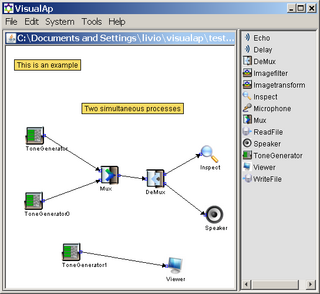 W
WVisualAp is a visual framework for building applications and emulate systems. VisualAp is cross-platform as it is a 100% Java application.
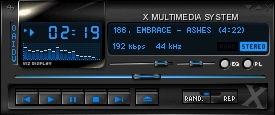 W
WX Multimedia System (XMMS) is an audio player for Unix-like systems released under a free software license.
 W
WXMMS2 is a new generation of the XMMS audio player. It is a new design, written from scratch, separate from the XMMS codebase. While Peter Alm, one of the original authors of XMMS, was responsible for the initial design and coding of XMMS2, he has since passed on the responsibility of furthering the project to Tobias Rundström and Anders Gustafsson. LXMusic, the default music player application in LXDE, is an XMMS2 client.
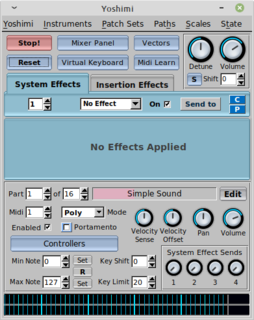 W
WYoshimi is a free and open-source software synthesizer for Linux.
 W
WZinf is a free audio player for Unix-like and Windows operating systems. Zinf is released under the GNU General Public License.
 W
WZynAddSubFX is a free and open-source software synthesizer for Linux, Mac OS X and Microsoft Windows. As of version 3, the completely new user interface is being released under proprietary terms with an open-source-eventually intention while the synthesis engine remains under the original GPL terms.